Related Research Articles

Bacillus Calmette–Guérin (BCG) vaccine is a vaccine primarily used against tuberculosis (TB). It is named after its inventors Albert Calmette and Camille Guérin. In countries where tuberculosis or leprosy is common, one dose is recommended in healthy babies as soon after birth as possible. In areas where tuberculosis is not common, only children at high risk are typically immunized, while suspected cases of tuberculosis are individually tested for and treated. Adults who do not have tuberculosis and have not been previously immunized, but are frequently exposed, may be immunized, as well. BCG also has some effectiveness against Buruli ulcer infection and other nontuberculous mycobacterial infections. Additionally, it is sometimes used as part of the treatment of bladder cancer.

Heinrich Hermann Robert Koch was a German physician and microbiologist. As the discoverer of the specific causative agents of deadly infectious diseases including tuberculosis, cholera and anthrax, he is regarded as one of the main founders of modern bacteriology. As such he is popularly nicknamed the father of microbiology, and as the father of medical bacteriology. His discovery of the anthrax bacterium in 1876 is considered as the birth of modern bacteriology. Koch used his discoveries to establish that germs "could cause a specific disease" and directly provided proofs for the germ theory of diseases, therefore creating the scientific basis of public health, saving millions of lives. For his life's work Koch is seen as one of the founders of modern medicine.

The history of medicine is both a study of medicine throughout history as well as a multidisciplinary field of study that seeks to explore and understand medical practices, both past and present, throughout human societies.

René-Théophile-Hyacinthe Laennec was a French physician and musician. His skill at carving his own wooden flutes led him to invent the stethoscope in 1816, while working at the Hôpital Necker. He pioneered its use in diagnosing various chest conditions. He became a lecturer at the Collège de France in 1822 and professor of medicine in 1823. His final appointments were that of head of the medical clinic at the Hôpital de la Charité and professor at the Collège de France. He went into a coma and subsequently died of tuberculosis on August 13, 1826 at age 45.

Tuberculosis (TB), also known colloquially as the "white death", or historically as consumption, is an infectious disease usually caused by Mycobacterium tuberculosis (MTB) bacteria. Tuberculosis generally affects the lungs, but it can also affect other parts of the body. Most infections show no symptoms, in which case it is known as latent tuberculosis. Around 10% of latent infections progress to active disease which, if left untreated, kill about half of those affected. Typical symptoms of active TB are chronic cough with blood-containing mucus, fever, night sweats, and weight loss. Infection of other organs can cause a wide range of symptoms.

Bacteriology is the branch and specialty of biology that studies the morphology, ecology, genetics and biochemistry of bacteria as well as many other aspects related to them. This subdivision of microbiology involves the identification, classification, and characterization of bacterial species. Because of the similarity of thinking and working with microorganisms other than bacteria, such as protozoa, fungi, and viruses, there has been a tendency for the field of bacteriology to extend as microbiology. The terms were formerly often used interchangeably. However, bacteriology can be classified as a distinct science.
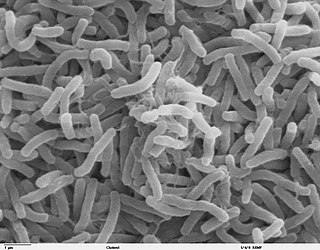
The germ theory of disease is the currently accepted scientific theory for many diseases. It states that microorganisms known as pathogens or "germs" can cause disease. These small organisms, too small to be seen without magnification, invade humans, other animals, and other living hosts. Their growth and reproduction within their hosts can cause disease. "Germ" refers to not just a bacterium but to any type of microorganism, such as protists or fungi, or other pathogens that can cause disease, such as viruses, prions, or viroids. Diseases caused by pathogens are called infectious diseases. Even when a pathogen is the principal cause of a disease, environmental and hereditary factors often influence the severity of the disease, and whether a potential host individual becomes infected when exposed to the pathogen. Pathogens are disease-carrying agents that can pass from one individual to another, both in humans and animals. Infectious diseases are caused by biological agents such as pathogenic microorganisms as well as parasites.
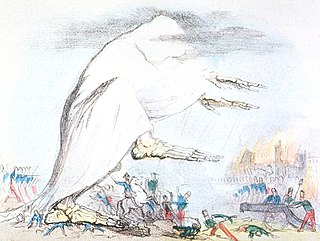
The miasma theory is an abandoned medical theory that held that diseases—such as cholera, chlamydia, or the Black Death—were caused by a miasma, a noxious form of "bad air", also known as night air. The theory held that epidemics were caused by miasma, emanating from rotting organic matter. Though miasma theory is typically associated with the spread of contagious diseases, some academics in the early nineteenth century suggested that the theory extended to other conditions as well, e.g. one could become obese by inhaling the odor of food.

Public health is "the science and art of preventing disease, prolonging life and promoting health through the organized efforts and informed choices of society, organizations, public and private, communities and individuals". Analyzing the determinants of health of a population and the threats it faces is the basis for public health. The public can be as small as a handful of people or as large as a village or an entire city; in the case of a pandemic it may encompass several continents. The concept of health takes into account physical, psychological, and social well-being.

The Pasteur Institute is a French non-profit private foundation dedicated to the study of biology, micro-organisms, diseases, and vaccines. It is named after Louis Pasteur, who invented pasteurization and vaccines for anthrax and rabies. The institute was founded on 4 June 1887 and inaugurated on 14 November 1888.
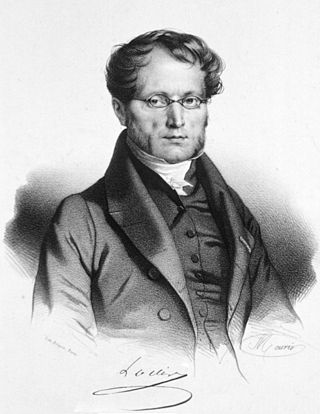
Pierre-Charles-Alexandre Louis was a French physician, clinician and pathologist known for his studies on tuberculosis, typhoid fever, and pneumonia, but Louis's greatest contribution to medicine was the development of the "numerical method", forerunner to epidemiology and the modern clinical trial, paving the path for evidence-based medicine.

Edmond Isidore Etienne Nocard, was a French veterinarian and microbiologist, born in Provins.
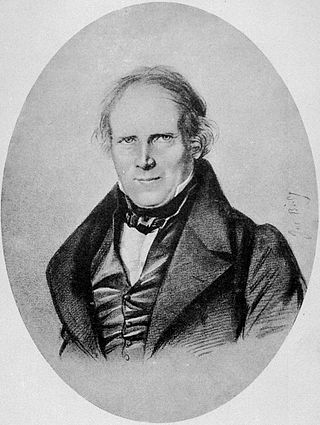
Louis-René Villermé was a French economist and physician. He was known for his early studies of social epidemiology, or the effects of socioeconomic status on health, in early industrial France, and was an advocate for hygienic reform in factories and prisons. His work is considered pivotal in the history of the fields of sociology and statistical inquiry, and he is considered a founder of epidemiology.
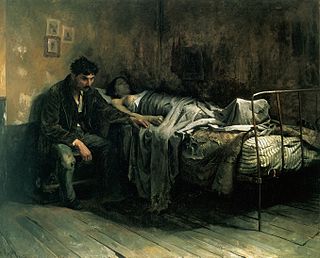
The history of tuberculosis encompasses the origins of the disease, tuberculosis (TB) through to the vaccines and treatments methods developed to contain and mitigate its impact.
The French Louis Pasteur (1822–1895) and German Robert Koch (1843–1910) are the two greatest figures in medical microbiology and in establishing acceptance of the germ theory of disease. In 1882, fueled by national rivalry and a language barrier, the tension between Pasteur and the younger Koch erupted into an acute conflict.

Howard Markel is an American physician and medical historian. At the end of 2023, Markel retired from the University of Michigan Medical School, where he served as the George E. Wantz Distinguished Professor of the History of Medicine and Director of the University's Center for the History of Medicine. He was also a professor of psychiatry, health management and policy, history, and pediatrics and communicable diseases. Markel writes extensively on major topics and figures in the history of medicine and public health.
Octave Leopold Boudouard (1872–1923) was a French chemist known for his 1905 discovery of the Boudouard reaction.
Contingent contagionism was a concept in 19th-century medical writing and epidemiology before the germ theory, used as a qualified way of rejecting the application of the term "contagious disease" for a particular infection. For example, it could be stated that cholera, or typhus, was not contagious in a "healthy atmosphere", but might be contagious in an "impure atmosphere". Contingent contagionism covered a wide range of views between "contagionist", and "anti-contagionist" such as held by supporters of the miasma theory.

This is a bibliography of tuberculosis (TB), an infectious disease that generally affects the lungs. As of 2018, the World Health Organization estimated that 25% of the world's population was infected with the latent form of the disease. In its active form, it is one of the top 10 causes of death worldwide.
Leonard Gilchrist Wilson was a Canadian-American historian of science, specializing in the history of medicine and biology and the history of nineteenth century geology. He is best known for his 1972 biography of Charles Lyell.
References
- ↑ The making of a social disease; : tuberculosis in nineteenth-century France (Book, 1995). WorldCat.org. 2009-03-12. OCLC 30319657.
- ↑ Nye, Robert A (1996). "The Making of a Social Disease: Tuberculosis in Nineteenth-Century France (review)". Bulletin of the History of Medicine. 70 (3): 528–529. doi:10.1353/bhm.1996.0082. S2CID 70955467. Project MUSE 3703.
- ↑ The great stink of Paris and the Nineteenth-Century struggle against filth and germs (Book, 2006). WorldCat.org. OCLC 475663476.
- ↑ "reprint" (PDF). content.nejm.org.
- ↑ The Great Stink of Paris and the Nineteenth-Century Struggle Against Filth and Germs (Article, 2007). WorldCat.org. OCLC 136624317.
- ↑ Hostetter, Margaret K. (2006). "The great stink of Paris and the nineteenth-century struggle against filth and germs". Journal of Clinical Investigation. 116 (11): 2835. doi:10.1172/JCI30510. PMC 1626110 .
- ↑ "Journal of European Studies - Sign In Page". Jes.sagepub.com. Retrieved 2010-05-19.
- ↑ David S. Barnes: The Great Stink of Paris and the Nineteenth-Century Struggle against Filth and Germs (Article, 2007). [WorldCat.org]. OCLC 212089060.
- ↑ The Great Stink of Paris and the Nineteenth-Century Struggle Against Filth and Germs (Article, 2008). [WorldCat.org]. OCLC 213463397.